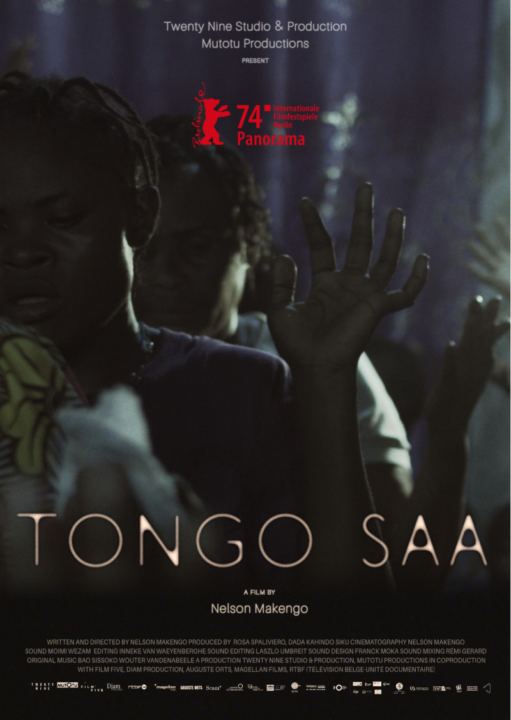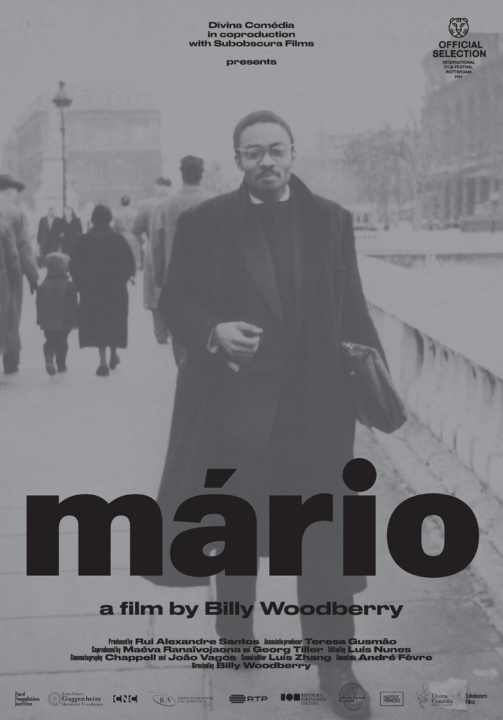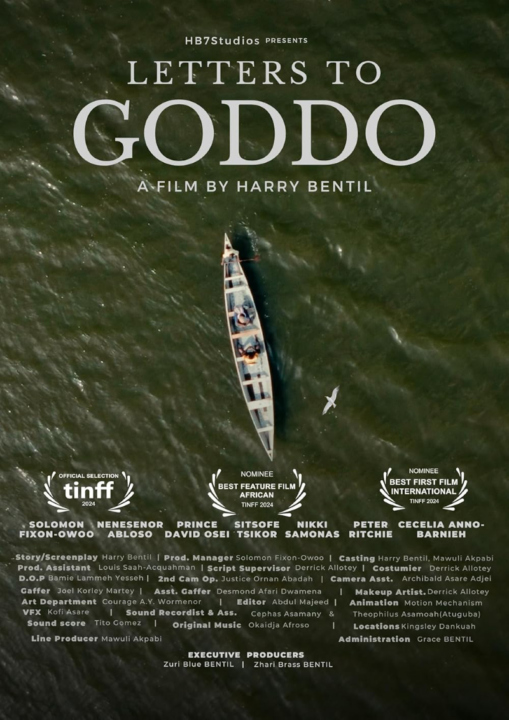Letters to Goddo, film still. Image Credit: Film Freeway
If there’s one thing 2024 proved, it’s that African cinema is no longer just a “rising star” in the film world—it’s a powerhouse commanding the attention of global audiences and critics alike. This year, African filmmakers delivered a stunning variety of narratives that reminded us why storytelling matters: to connect us, challenge us, and open our eyes to worlds we may never have experienced otherwise.
From the sun-scorched deserts of the Sahel to the bustling streets of Accra, African cinema transported viewers into spaces brimming with life, heartache, and joy. This wasn’t just about representing the continent; it was about redefining its role on the global stage. Whether it was a drama tackling societal challenges or a documentary peeling back the layers of untold histories, African films didn’t merely entertain—they provoked thought, started conversations, and stirred souls.
What stood out in 2024 was not just the quality of the films but the breadth of the stories being told. These weren’t tokenistic tales meant to cater to an international gaze. They were deeply personal, steeped in local realities, yet profoundly universal in their appeal. They celebrated diversity—of experiences, voices, and styles—making it clear that African cinema is not a monolith but a kaleidoscope of perspectives waiting to be explored.
This year, African films celebrated at significant festivals and competed at prestigious awards, cementing their status as essential players in the global film industry. For fans and newcomers alike, 2024 was a vibrant reminder: African stories are not just for Africa—they’re for the world.
So, what made this year’s cinematic offerings so unforgettable? Let’s dive into the films and trends that defined African cinema in 2024, exploring how they captured the essence of a continent while speaking to the shared humanity of audiences everywhere.
Tongo Saa (Rising Up at Night)
Director Nelson Makengo brings to life a striking portrait of Kinshasa, the capital of the Democratic Republic of the Congo, through his poetic documentary, Tongo Saa. The film delves into the social fabric of a city struggling under frequent power outages and socioeconomic challenges. At its core, it’s a story of resilience as communities, particularly women, pool resources to restore electricity, highlighting their determination to reclaim agency over their lives. Set against the larger backdrop of Africa’s ambitious energy projects, Tongo Saa presents a duality: the promise of progress juxtaposed with the grim realities on the ground.

Source: Rising Up at Night (2024) – IMDb
Makengo’s cinematic techniques, combining raw intimacy with haunting visuals, make the documentary more than an observational piece. It’s a sensory journey through the struggles and spirituality of Kinshasa’s people, underscored by powerful soundscapes from composers Bao Sissoko and Wouter Vandenabeele.
Mário
Directed by Billy Woodberry, one of the seminal voices of the L.A. Rebellion movement, Mário sheds light on the life of Mário Pinto de Andrade, an intellectual and revolutionary at the forefront of Africa’sfight for decolonization. Through this documentary, Woodberry explores themes of exile, identity, and the relentless quest for sovereignty, offering viewers a deep dive into the complexities of Andrade’sactivism and its impact on modern Africa.

Source: Mário (2024) – IMDb
The film stands out for its historical depth and meditative pace, allowing audiences to reflect on the personal sacrifices behind liberation movements. With Mário, Woodberry adds a significant chapter to the cinematic documentation of African resistance and resilience, reaffirming his reputation as a pioneer of meaningful storytelling.
Nyame Mma (Children of God)
Joewackle J Kusi’s Nyame Mma is a short film that resonates deeply with its exploration of grief, familial expectations, and queer identity within Ghana’s shifting cultural aGhana’stical landscape. The film’s narrative artfully unpacks the intersections of tradition and modernity, using its short runtime to weave an emotionally potent story that lingers with its audience.

Source: NYAME MMA (Children Of God) – BSIFF
Kusi crafts a nuanced and empathetic portrait of marginalized identities by addressing themes often overlooked in Ghanaian cinema. Nyame Mma has garnered acclaim worldwide for its courageous storytelling and ability to tackle complex issues with sensitivity, signaling the emergence of a bold new voice in African cinema.
Letters to Goddo
Directed by Harry Bentil, Letters to Goddo is a poignant drama that artfully blends spirituality, forgiveness, and self-discovery. The narrative follows a protagonist grappling with loss and searching for redemption through letters addressed to a higher power. These letters become a metaphor for the human need to communicate emotions, seek guidance, and find closure.

Source: https://www.imdb.com/title/tt33165328/
Set against the vibrant backdrop of Ghana, the film is deeply introspective, resonating with audiences through its relatable themes and authentic storytelling. Harry masterfully uses subtle imagery and emotional dialogue to delve into universal questions of faith and reconciliation.
Why African Cinema Matters
African cinema is a powerful cultural force, uniquely positioned to reshape narratives about the continent and contribute to global storytelling. Its significance transcends entertainment, touching on identity, representation, and cultural exchange issues. Here’s why it deserves recognition and support:
- Preserving and Celebrating Culture
African cinema offers an intimate look at the continent’s vast cultural heritage. Language, traditions, and local customs are preserved and celebrated through film. Each movie is a time capsule, documenting evolving societal norms while maintaining ties to ancestral roots. This medium ensures that African stories are told by Africans, providing authenticity and richness often missing in outside portrayals.
- Challenging Global Narratives
For decades, Africa’s depiction in international media has been narrow, often focused on negative stereotypes. African filmmakers are redefining these perceptions by telling stories that reflect the complexity and diversity of the continent. Their work showcases a multifaceted Africa—innovative, vibrant, and deeply connected to the global cultural fabric—while addressing universal themes of love, family, and resilience.
- A Platform for Marginalized Voices
African cinema amplifies voices often sidelined, particularly those of women and marginalized communities. Female directors and storytellers use film to explore gender dynamics, societal pressures, and personal triumphs. This storytelling empowers individuals, sparks conversations, and drives progress toward equality and inclusion across the continent.
- A Catalyst for Socioeconomic Development
The African film industry is a cultural asset and a thriving economic sector. Nollywood, for instance, is a multibillion-dollar industry, providing employment for thousands and inspiring similar growth in other regions. The ripple effects of this success extend beyond film, boosting local economies and fostering related industries like fashion, music, and tourism.
- Innovation and Storytelling Excellence
African filmmakers are redefining cinematic boundaries with innovative techniques and storytelling. They often blend modern filmmaking with oral traditions, creating fresh yet familiar narratives. This innovation resonates globally, setting trends and inspiring filmmakers worldwide to push creative limits.
- Addressing Social Issues
African cinema is deeply intertwined with activism, tackling inequality, climate change, and youth empowerment. Filmmakers encourage dialogue and inspire action by weaving these themes into compelling narratives. These films serve as mirrors and call to action, reflecting societal challenges while urging audiences to envision solutions.
- Global Recognition and Cultural Exchange
The rise of African cinema on international platforms highlights its growing influence. It bridges cultural divides, fostering understanding and appreciation for African art and life. Festivals and awards bring African stories to global audiences, emphasizing their themes’ universality and contribution to world cinema.
Conclusion
African cinema is a testament to the continent’s creativity, resilience, and vision for the future. It challenges misconceptions, celebrates diversity, and connects people through the universal power of storytelling. As the industry grows and garners more recognition, African filmmakers are poised to shape the narrative of their continent and the future of global cinema.

Anand Subramanian is a freelance photographer and content writer based out of Tamil Nadu, India. Having a background in Engineering always made him curious about life on the other side of the spectrum. He leapt forward towards the Photography life and never looked back. Specializing in Documentary and Portrait photography gave him an up-close and personal view into the complexities of human beings and those experiences helped him branch out from visual to words. Today he is mentoring passionate photographers and writing about the different dimensions of the art world.





